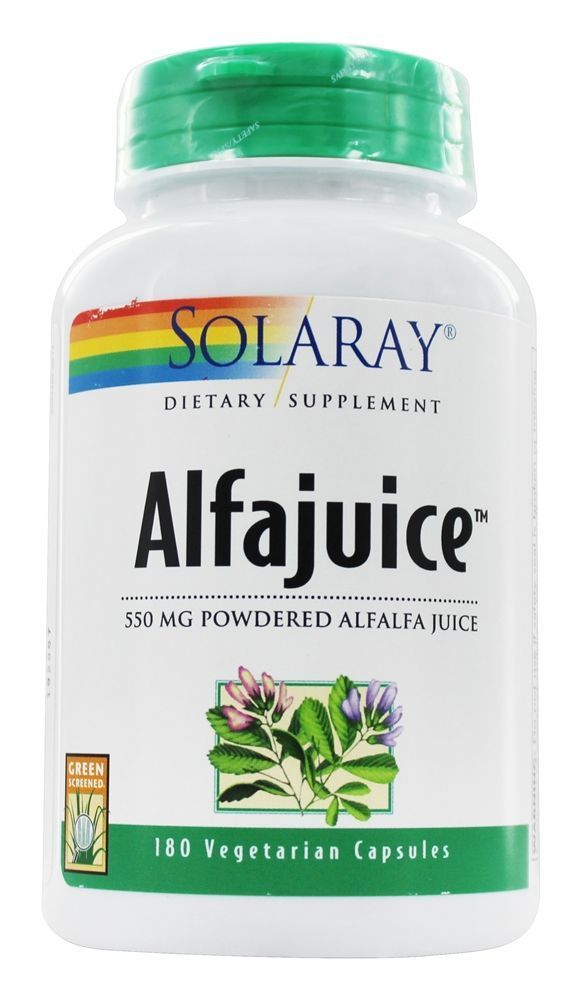Alfalfa, scientifically known as Medicago sativa, is a perennial flowering plant native to warmer temperate climates and has been cultivated for centuries for its rich nutritional content and medicinal properties. Often referred to as the “father of all foods,” alfalfa boasts a comprehensive profile of vitamins, minerals, and phytonutrients, making it a staple in herbal medicine and a popular dietary supplement. The health benefits of alfalfa supplements are diverse, ranging from improving digestion to supporting bone health, which has led to its widespread use across various cultures. This comprehensive guide will explore the multifaceted benefits of alfalfa supplements, underpinned by scientific research and traditional uses, offering insights into their role in promoting overall health and well-being.
Nutritional Profile and Basic Health Benefits
Alfalfa is remarkably nutritious, containing essential vitamins such as Vitamin K, Vitamin C, and a full spectrum of B vitamins. It is also a rich source of minerals like calcium, magnesium, potassium, and iron. Moreover, alfalfa contains significant amounts of protein and dietary fiber, alongside potent phytoestrogens and antioxidants. This nutritional powerhouse supports general health by boosting the immune system, reducing inflammation, and combating oxidative stress.
Digestive Health
Alfalfa supplements have a longstanding tradition of use in promoting digestive health. The high fiber content in alfalfa aids in regular bowel movements and supports a healthy digestive tract. Additionally, alfalfa is believed to detoxify the intestines and purify the blood, contributing to improved nutrient absorption and overall digestion. The plant also possesses mild laxative properties, which further facilitates digestive health.
Cardiovascular Benefits
Alfalfa supplements have shown promise in supporting cardiovascular health. Studies suggest that the saponins found in alfalfa can help lower bad cholesterol levels (LDL) without affecting good cholesterol (HDL), potentially reducing the risk of heart disease. Furthermore, the high levels of antioxidants and anti-inflammatory compounds in alfalfa may aid in blood pressure regulation and improve arterial health, offering a natural approach to heart disease prevention.
Anti-inflammatory Properties
The anti-inflammatory effects of alfalfa are noteworthy. Its rich array of antioxidants, including phytochemicals and flavonoids, helps to mitigate inflammation in the body. This is particularly beneficial for individuals suffering from chronic inflammatory conditions such as arthritis. Regular consumption of alfalfa supplements can help alleviate pain and improve joint mobility by reducing inflammation.
Hormonal Balance
Alfalfa contains phytoestrogens, plant-based compounds that mimic the action of estrogen in the body. These compounds can play a crucial role in balancing hormones, especially in women experiencing menopausal symptoms such as hot flashes and night sweats. By acting as a natural hormone regulator, alfalfa supplements offer a gentler alternative to hormone replacement therapy for managing menopause-related symptoms.
Immune System Support
The wide range of vitamins, minerals, and antioxidants in alfalfa makes it an excellent supplement for boosting the immune system. Regular intake of alfalfa supplements can enhance the body’s ability to fight off infections and diseases, thanks to its potent antimicrobial and antiviral properties. This immune-boosting effect is particularly beneficial during cold and flu seasons or for individuals with weakened immune systems.
Bone Health
Alfalfa is a rich source of Vitamin K, which is essential for bone formation and strength. Vitamin K plays a critical role in calcium absorption and bone mineralization, making alfalfa supplements beneficial for preventing osteoporosis and promoting overall bone health. Additionally, the high mineral content, including calcium and magnesium, further supports the development and maintenance of healthy bones.
Detoxification
Alfalfa has been traditionally used for its detoxifying properties. It is considered a natural diuretic, promoting the elimination of water and toxins from the body through increased urination. This detoxification process supports liver health and can aid in reducing bloating and water retention. Furthermore, the chlorophyll content in alfalfa is believed to have a purifying effect on the blood, enhancing its detoxifying benefits.
Diabetes Management
Emerging research indicates that alfalfa supplements may have a beneficial impact on blood sugar regulation. The high fiber content helps slow down glucose absorption, preventing spikes in blood sugar levels. Additionally, alfalfa’s antioxidant properties may improve insulin sensitivity, making it a useful supplement for individuals managing diabetes or at risk of developing the condition.
How to Take Alfalfa Supplements
Alfalfa supplements are available in various forms, including tablets, capsules, powders, and teas. The appropriate form and dosage depend on individual health goals and conditions. It’s essential to follow the recommended dosages provided by supplement manufacturers or consult with a healthcare provider to determine the optimal intake.
Precautions and Side Effects
While alfalfa supplements are generally safe for most people, some individuals may experience side effects such as gastrointestinal discomfort or allergic reactions. Alfalfa contains vitamin K, which can interact with blood-thinning medications, potentially increasing the risk of bleeding. People with hormone-sensitive conditions should exercise caution due to the phytoestrogen content in alfalfa. Pregnant and breastfeeding women should consult a healthcare provider before taking alfalfa supplements.
Conclusion
Alfalfa supplements offer a wide array of health benefits, from supporting digestive and cardiovascular health to promoting hormonal balance and immune system strength. With its rich nutritional profile, alfalfa stands out as a versatile supplement for enhancing overall health and well-being. However, it’s important to approach alfalfa supplementation with caution, considering potential side effects and interactions. As with any supplement, consulting with a healthcare professional before incorporating alfalfa into your health regimen is advisable to ensure it aligns with your individual health needs and conditions. Through responsible use, alfalfa supplements can be a valuable addition to a holistic approach to health and wellness.
- Benefits of Alfalfa Supplements - April 2, 2024
- Benefits of Agrimony Supplements - April 2, 2024
- Benefits of Agnus Castus Supplements - April 2, 2024


